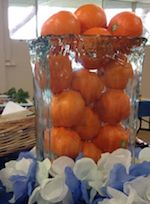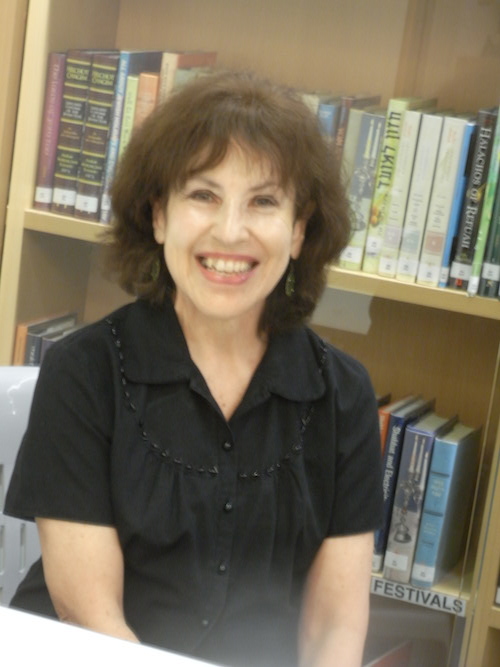Celebrations - President's Message 29/07
29/07/2016 04:34:17 AM
| Author | |
| Date Added | |
| Automatically create summary | |
| Summary |
Last Friday night South Head Synagogue was a happening place. There were about 250 people in shul, many of them especially for the bat mitzvah of Tayla Hechter, including some overseas visitors (I met her uncle from Los Angeles). Tayla spoke movingly about many of her grandmothers and great-grandmothers and their lessons for her – mazal tov to Tayla and her family.
At the end of the Maariv service we held our inaugural Friday night Kiddush in the entrance area of the shul. The Kiddush featured good whisky, soft drinks and light snacks (chips, nuts, cakes); there was a warm feeling and a chance to socialise with other congregants before heading home to Shabbos dinner. The Kiddush was co-sponsored by Murray Spiro and Norman Chilchik in honour of yahrtzeits. It was organised by our Shmuly Kleiner, our Pastoral and Communal Engagement Manager. Please talk to him if you are interested in sponsoring a Kiddush or you have other suggestions.
After the Kiddush I joined the group of bar mitzvah boys and their families for Shabbos dinner in the Herbert Hall downstairs. The boys had all attended bar mitzvah classes taught by Rabbi Yehoshua Niasoff, our Chazzan, and each boy spoke about something he had learned – the topics ranged from tefillin to tallis, shechting an animal, and the five different levels or dimensions of the soul. The dinner was organised by Rebbetzin Henya Milecki and Rabbi Shmuly; they were assisted by a number of volunteers. Rabbi Milecki led us with ruach and song.
One of the boys at the dinner, Brad Benstock, had his bar mitzvah at South Head in early April (Parshas Parah). Brad had a very good bar mitzvah teacher, his grandfather, Michael Benstock, recently retired as our baal koreh (the person who reads or leyns from the Torah) and as Jewish studies teacher at Moriah (his most recent student evaluations were “awesome,” “legend,” and “still memorable as my favourite teacher after nearly 25 years”). Brad gave a very impressive talk from the bimah that I would like to share with you here:
* * *
From early times in the Second Temple period, it had become customary to read portions of the Tanach during the course of the Shabbat. The Torah was to be read at the Morning Service, an appropriate section of the Prophets was to be read at the end of the service and in the afternoon the great rabbis developed sermons based on the Writings. You may have noticed that I said that the Haftarah was read at the close of the service. The word Haftarah means dismissal, and after it was read, very often by a young boy, the people went home for lunch. In time, the Additional Service was joined to the Morning Service, as is the custom today amongst all Jews, Ashkenazi or Sephardi.
Now lets get back to my Haftarah. The author of the Haftarah is Ezekiel, whose book is one of the longest in the Bible. This book alone, in the division of the Prophets, came in for strong criticism on the part of Rabbis who lived during the period of the Mishna. Ultimately, the Book of Ezekiel won the day, and the Rabbis voted for its inclusion in the Bible.
What was the problem with the book? Some rabbis felt that Ezekiel differed in detail from what was set out in the Torah; others were unhappy at his description of God in Heaven.
Ezekiel lived in Babylon, which is modern day Iraq. He was carried off there in captivity from Jerusalem with other aristocratic families, some years before the destruction of the First Temple. He was strongly influenced by the prophet Jeremiah, who advised the Jews to pray for the country in which they found themselves. The Talmud reflects Jeremiah's advice by stating the well known saying:
"The law of the country in which you live is now your law."
This is repeated over and over again in the Talmud.
The Jews settled down in Babylon and there they produced their great masterpiece, the Talmud. The prophet Ezekiel did not cry any more at the waters of Babylon, but was told by God to concentrate on looking after the new exiles. Not that they ever forgot their past, or the glory of Jerusalem, which they had left behind. They solemnly promised:
If I forget you, O Jerusalem, let my right hand wither, let my tongue stick to my palate, if I cease to think of you; if I do not keep Jerusalem in memory, even at my happiest hour.
Jews, thus set the bar for what is expected of migrants; that is, loyalty to the country which has taken them in, and which they are now part. Australia has absorbed migrants from many countries. After the war, people poured in from Southern Europe, from Italy, Greece and other lands, not forgetting all the Jews who came to this country after the Holocaust, and all who were successfully absorbed.
The prophet ends his teaching with what seems to be a veiled reference to New Zealand. He says nothing about the recent Test Match in the shaky isles, but has a lot to say about sheep. His mind turns to the Temple with which he was so familiar as a young priest. His eyes sweep over the court of the Temple once crowded with thousands of sheep, brought by the pilgrims on the three Festivals of Pesach, Shavuot and Succot. He looks forward to the day when the Temple will be rebuilt and the courts packed with people as far as the eye can see. Today he would be so proud that his dreams have nearly all come true. The courts are full of worshippers, their faces turned to the remaining wall of our Holy Temple; every heart and mind drawn to past glories, yet expectantly fixed on a bright future.
He Who makes peace in His high heavens, through His infinite mercy, grant peace unto us and to all Israel, and say Amen.
* * *
South Head Synagogue is a warm and vibrant place for davening, being part of our Jewish community and celebrating important life events.
Mon, 25 August 2025
1 Elul 5785
Contact Us:
Today's Calendar
| Rosh Chodesh Elul |
| Shacharis : 6:30am |
: 9:10am |
: 5:30pm |
| Mincha : 5:35pm |
: 5:57pm |
This week's Torah portion is Parshas Shoftim
| Shabbos, Aug 30 |
Candle Lighting
| Friday, Aug 29, 5:17pm |
Havdalah
| Motzei Shabbos, Aug 30, 6:13pm |
Rosh Chodesh Elul
| Monday, Aug 25 |
Full Calendar Here
Happy Jewish Birthday!
Monday 1 Elul
- Toby Levine-Evans
We wish "Long Life" to:
Monday 1 Elul
- Elaine Bolon for father, Gerald Sender
Wednesday 3 Elul
- Cecille Levin for husband, Gerald Philip Levin
- Gary Weiss for uncle, Berl Yisosko Dov Frankl
Halachik Times
| Alos Hashachar | 5:09am |
| Earliest Tallis | 5:38am |
| Netz (Sunrise) | 6:23am |
| Latest Shema | 9:10am |
| Zman Tefillah | 10:06am |
| Chatzos (Midday) | 11:58am |
| Mincha Gedola | 12:25pm |
| Mincha Ketana | 3:13pm |
| Plag HaMincha | 4:22pm |
| Shkiah (Sunset) | 5:32pm |
| Tzais Hakochavim | 5:57pm |
| More >> | |
South Head Catering

South Head Catering is well and truly on the map! What began as a small initiative to provide a little variety and some new options by the South Head Ladies Guild has turned into a highly successful venture with people absolutely raving about the service and products on offer.
Want to know more? Want to help out and volunteer? Visit our Catering page.
Mikvah Aziza
Mikvah Aziza at 662 Old South Head Road, Rose Bay has re-opened.
Please click here for details:
South Head Library
 Welcome to the Sandra Bransky Library & Youth Synagogue, located on the first floor and including the Beit Midrash. Drop in any Sunday morning between 9 - 11am.
Welcome to the Sandra Bransky Library & Youth Synagogue, located on the first floor and including the Beit Midrash. Drop in any Sunday morning between 9 - 11am.
I look forward to helping you get the most out of our beautiful world of books at South Head.
Sylvia Tuback, South Head Libarian
southheadlibrary@gmail.com
SHOFTIM
Rose Bay, NSW 2029
(02) 9371 7300
Privacy Settings | Privacy Policy | Member Terms
©2025 All rights reserved. Find out more about ShulCloud



